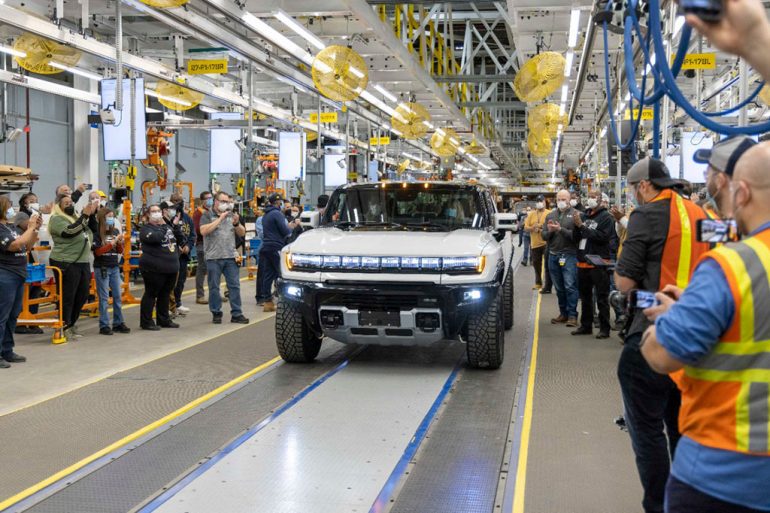
General Motors (GM) has announced its plans to increase employment in 2024, despite concerns raised by autoworkers regarding the impact of the shift towards electric vehicles (EVs) on labor needs. GM, along with Ford Motor and Stellantis, has initiated contract talks with the United Auto Workers (UAW) union ahead of the expiration of the current four-year labor deals on September 14.
Gerald Johnson, GM’s manufacturing chief, addressed the concerns, stating that the company does not anticipate a reduction in the number of workers required for EV production. In fact, Johnson expressed optimism, mentioning that they expect employment numbers to grow in 2024. This comes as a positive reassurance to the workforce amidst worries about potential job losses due to the simplicity and fewer mechanical parts of EVs compared to traditional internal combustion engine (ICE) vehicles.
However, a significant point of contention in the contract talks involves the pay and treatment of workers at GM’s joint venture battery plants. CFRA Research even downgraded GM, citing concerns about the possibility of a strike following the UAW’s demand for substantial pay and benefit hikes. Stellantis also stated its intention to reward its represented employees fairly for their contributions to the company’s success, but emphasized the importance of finding common ground that does not hinder their ability to continue investing.
The UAW’s proposals include seeking a pay hike of over 40% over the four-year contract, with an initial 20% increase upon ratification and 5% annual wage hikes starting in September 2024. Moreover, the union aims to secure defined-benefit pensions for all workers, shorter work weeks, making all temporary workers permanent, and a substantial increase in paid time off. Additionally, the UAW wants to restore retiree health care benefits, cost of living adjustments, and for temporary workers to receive profit sharing.
UAW President Shawn Fain expressed support for a 32-hour work week, advocating for a reduction from the traditional 40 hours. The union also proposed the equivalent of a paid day-off per week, aligning with the global experimentation of a four-day working week in various places.
GM’s stance on the UAW proposals has been cautious, asserting that some of the demands could threaten the company’s ability to make decisions that serve the long-term benefit of the entire team.
As contract talks continue, both parties will need to find common ground to ensure the smooth transition to EV production while addressing the concerns and interests of the autoworkers. The outcome of the negotiations will play a crucial role in shaping the future of labor relations in the automotive industry as it navigates the transition towards sustainable and advanced technologies.

Mike Floyd is a finance executive by trade and a car enthusiast at heart. As a CFO with a keen eye for detail and strategy, Mike brings his analytical mindset to the automotive world, uncovering fresh insights and unique perspectives that go beyond the surface. His passion for cars—especially his favorite, the Porsche 911, fuels his contributions to Automotive Addicts, where he blends a love for performance and design with his professional precision. Whether he’s breaking down industry trends or spotlighting emerging innovations, Mike helps keep the site both sharp and forward-thinking.